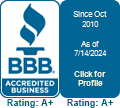One of the best things about Christmas and New Year’s is all the great food we get to share with family and friends. Sweets and desserts are probably the most comforting, familiar and irresistible part of all that delicious holiday food.
While eggnog, fruit cakes and sugar cookies are holiday traditions, eating them in moderation certainly is not. Gaining a few extra pounds is fairly common over the holidays and that’s why most people limit the sweets they eat. But people with chronic infections have an extra incentive to enjoy sugary holiday foods in moderation.
The trouble with sugar
Eating refined sugars is one of the quickest ways to depress your immune system. And a depressed immune system is the last thing you want if you have an infection. While sweets in moderation are generally OK, sugar is best avoided altogether if you have an active infection.
One of the most frustrating things about sugar is how addictive it can be. And sugar cravings seem even stronger over the holidays. Cravings often lead to a sugar binge, eating a lot of sugar at once, often between meals. The trouble is, eating a lot of sugar at once, and eating it without other foods, magnifies the negative effects of sugar on your body. So what can you do to reduce cravings, support your immune system and enjoy holiday sweets in a better way?
How to curb cravings
While your sweet tooth may be in overdrive this Christmas, there are several things you can do about those unruly sugar cravings. There are also ways to help your body handle excess sugar and counteract some of the unpleasant aftereffects from overeating. Below are seven simple and effective tips to reign in your sweet tooth and support your body if you do overindulge:
- Eat sweets with other foods. Foods high in fiber help slow down sugar metabolism and reduce the “sugar shock” on your body from overindulging in holiday sweets.
- Eat dessert first. The best time to eat sweets is right at the start of a meal, not afterward as dessert. Eating sweets first slows sugar’s metabolism in your body.
- Eat organic and minimally processed foods. If you’re going to indulge, make sure it’s organic, raw or minimally processed. Raw fruits are an excellent way to sweeten many dessert dishes. Natural, homemade and unprocessed desserts will taste better and contain fewer preservatives, colors and other harmful artificial ingredients.
- Eat some cinnamon. Cinnamon helps counteract the effects of sugar on your body and is a great tasting addition to many sweets. A drop of Cinnamon essential oil in your favorite hot tea or chai can also help.
- Stomach support with Fennel. Fennel essential oil can suppress your appetite and help your body detoxify after overeating. Fennel essential oil also helps sooth stomach upset and aids in digestion of rich foods.
- Trick your taste with essential oils. 90% of taste comes from your sense of smell. Research has shown that regularly inhaling a culinary scent throughout the day can suppress your desire to eat. Air diffusing essential oils can trick your brain into feeling less hungry. It’s best to vary the variety of oils you diffuse each day. It’s also best to diffuse at regular intervals throughout the day, not just a single brief use (which can actually increase appetite).
- Chromium supplementation. A recent 113 patient study found that supplementing with the mineral chromium can reduce sugar cravings and help control appetite (J Psychiatr Pract. 2005 Sep;11(5):302-14). In the study, 600 micrograms per day of chromium showed positive results. Dr. Jonathan V. Wright of the Tacoma Clinic has seen excellent results with sugar cravings with 1000 micrograms up to 3000 micrograms per day.
So, by adding a few simple steps to your holidays, you can slow your body’s response to sugar, and/or eat better sources of sugar for your body.
Have a blessing-filled Christmas,
Michelle
Microbiologist and Natural Health Expert





